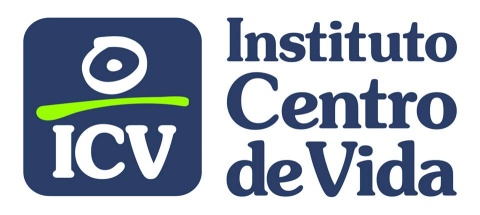Founded in 1991, The Instituto Centro de Vida (ICV) is a leading environmental civil society organization in the southern Brazilian Amazon and the reference for restoration, conservation and governance of forests in Mato Grosso State.
Its mission is to build shared solutions for land use sustainability. In that spirit, it has established a target of restoring 10,000 ha in Mato Grosso.
Since 2005, ICV has supported the Mato Grosso state government to improve deforestation control and to develop private-sector deforestation and restoration strategies, including one presented at COP21. ICV has also worked since 2001 with municipalities and producers in the Amazon to improve local environmental governance and disseminate improved land use practices. For example, ICV helped the Alta Floresta municipality achieve a sharp decline in deforestation, and is now aiding the municipality to restore and transparently monitor its previously degraded riparian areas. Finally, ICV's direct work with producers in northern Mato Grosso has led to the restoration of more than 1,500 ha of degraded land.
All of ICV’s achievements have centered strong commitments to foment and intensify public participation and governmental transparency. Since 2008, it has developed new methodologies to guide state agencies to radically improve the availability and quality of environmental information and to support the participation of vulnerable groups in multistakeholder partnerships.
Country
Brazil
Founded in 1991, The Instituto Centro de Vida (ICV) is a leading environmental civil society organization in the southern Brazilian Amazon and the reference for restoration, conservation and governance of forests in Mato Grosso State.
Its mission is to build shared solutions for land use sustainability. In that spirit, it has established a target of restoring 10,000 ha in Mato Grosso.
Since 2005, ICV has supported the Mato Grosso state government to improve deforestation control and to develop private-sector deforestation and restoration strategies, including one presented at COP21. ICV has also worked since 2001 with municipalities and producers in the Amazon to improve local environmental governance and disseminate improved land use practices. For example, ICV helped the Alta Floresta municipality achieve a sharp decline in deforestation, and is now aiding the municipality to restore and transparently monitor its previously degraded riparian areas. Finally, ICV's direct work with producers in northern Mato Grosso has led to the restoration of more than 1,500 ha of degraded land.
All of ICV’s achievements have centered strong commitments to foment and intensify public participation and governmental transparency. Since 2008, it has developed new methodologies to guide state agencies to radically improve the availability and quality of environmental information and to support the participation of vulnerable groups in multistakeholder partnerships.
Country
Brazil

